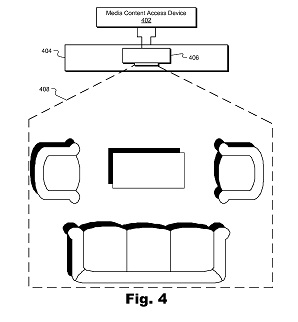USPTO Officially Rejects Verizon's Patent on 'Spy' Set-Top
The smarter way to stay on top of the multichannel video marketplace. Sign up below.
You are now subscribed
Your newsletter sign-up was successful

Verizon Communications’ patent application for a camera-enabled set-top that would serve ads based on which TV viewers were in the room -- and what they were saying or doing -- was officially rejected on March 7.
According to the U.S. Patent & Trademark Office’s Patent Application Information Retrieval system, Verizon’s application for “Methods and Systems for Presenting an Advertisement Associated with an Ambient Action of a User” received a final rejection last Thursday. The agency cited prior patents in the field for the rejection.
Verizon spokesman Ed McFadden said the telco is "reviewing" the decision.
That doesn’t mean the concept of serving up targeted ads using a set-top with a camera is dead -- others are actively exploring the concept. Intel, for one, has said its forthcoming Internet-delivered TV service will employ a set-top with a camera and facial-recognition technology to deliver custom content and potentially advertising.
Verizon’s patent application covered a broad range of activities that a set-top would detect for the purposes of targeted advertising, including “eating, exercising, laughing, reading, sleeping, talking, singing, humming, cleaning, and playing a musical instrument.”
In addition, it described detecting an “ambient action [that] comprises an interaction between the user and another user,” including “cuddling, fighting, participating in a game or sporting event, and talking.”
The telco’s patent application, filed last May, was first reported by FierceCable after the USPTO published it in November. The story was picked up by national outlets, including NBC Nightly News.
The smarter way to stay on top of the multichannel video marketplace. Sign up below.
However, the USPTO had already initially rejected the application as "unpatentable." According to the agency's initial review, which it affirmed last week, other granted patents already cover claims cited in the Verizon filing. The primary prior patent cited was U.S. Patent No. 7,865,916, "Audience determination for monetizing displayable content," which was granted in January 2011. The USPTO determined that the application for that patent covered the bulk of Verizon’s claims, including detecting an "ambient action" by a user and then serving an ad based on that.
The '916 patent lists five inventors and intellectual property law firm Connolly Bove Lodge & Hutz LLP as the agent.
The Verizon application achieved widespread attention -- and some incredulous responses -- because of its descriptive examples. For example, it said TV viewers who were identified as “cuddling” could be served a commercial associated with cuddling such as “a commercial for a romantic getaway vacation, a commercial for a contraceptive, a commercial for flowers, a commercial including a trailer for an upcoming romantic comedy movie, etc."
In responding last fall to media reports about the application, Verizon director of digital policy communications Libby Jacobson sought to downplay privacy fears. The company “prizes its well-established track record of respecting its customers’ privacy and protecting their personal information," she wrote in a blog post.
